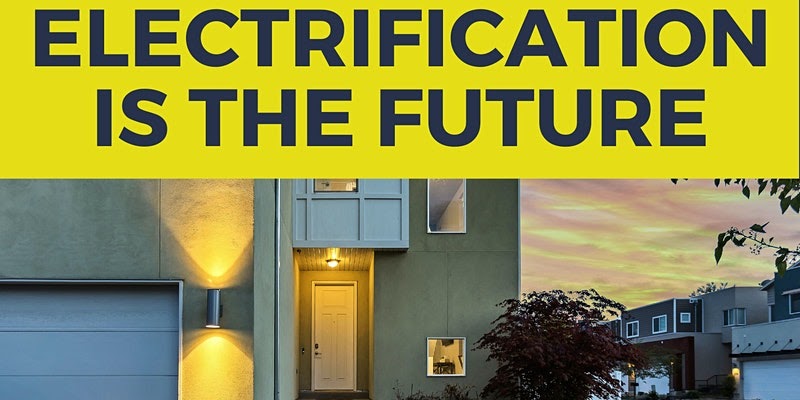
Electrify Charlottesville
Charlottesville, like countless other cities across the country, is facing an energy crisis. An organization called the Community Climate Collaborative (C3) has partnered with the Local Energy Alliance Program (LEAP) to help Charlottesville residents and businesses transform their energy usage. The joint program includes fundraising for non-incentivised upgrades and panel talks for anyone interested in learning about switching their energy to electric.
The program offered a free event led by C3 executive director Susan Kruse on March 30, titled Electrification is the Future. The talk centered on switching home energy usage from gas or fossil fuels to electric appliances. Kruse was joined by several other professionals in the Charlottesville area, but the main leader of the meeting was John Semmelhack, owner of a local contractor specializing in energy efficient home-projects called Think Little.
Semmelhack began the event with a virtual tour of the work he had done to switch a client’s home heating system, water system and cooking system to electric energy. He outlined the changes that needed to be made to the previous systems and how common inefficiency is. “Most houses have a furnace that is three times bigger than what is needed for the size of the home,” Semmelhack said.
By switching to electric energy, he explained, homeowners and business owners would be saving more money and living more comfortably. Another main point of discussion was the motivation for switching to electric energy and what kinds of electric energy would be best to invest in. Semmelhack explained what he thought the best option would be in a limited environment. “In the long run, switching your home appliances from gas to electric is more sustainable and more possible with limited resources than putting up solar panels or other options,” he said.
Semmelhack continued to uproot the full benefits of switching to electric energy which aren’t limited to saving money. Improved air quality, less audible noise and maintenance, as well as more consistent temperatures for heating and cooking are all reasons for switching. These changes are also safer for the environment and those living in the home.
The only obstacle in switching to more sustainable energy is the lack of accessibility and affordable resources available for those willing to switch. The government does not subsidize or incentivize switching, and rebates for old systems are rare or nonexistent, making it hard for consumers to make the switch. But Semmelhack had this to say in response to questions of the real-world possibility of a full switch to an electrical grid, “Virginia’s grid will be entirely electric by 2050: it is going to happen either way.”
Learn more about LEAP and C3 and their efforts to further renewable energy on their websites.






